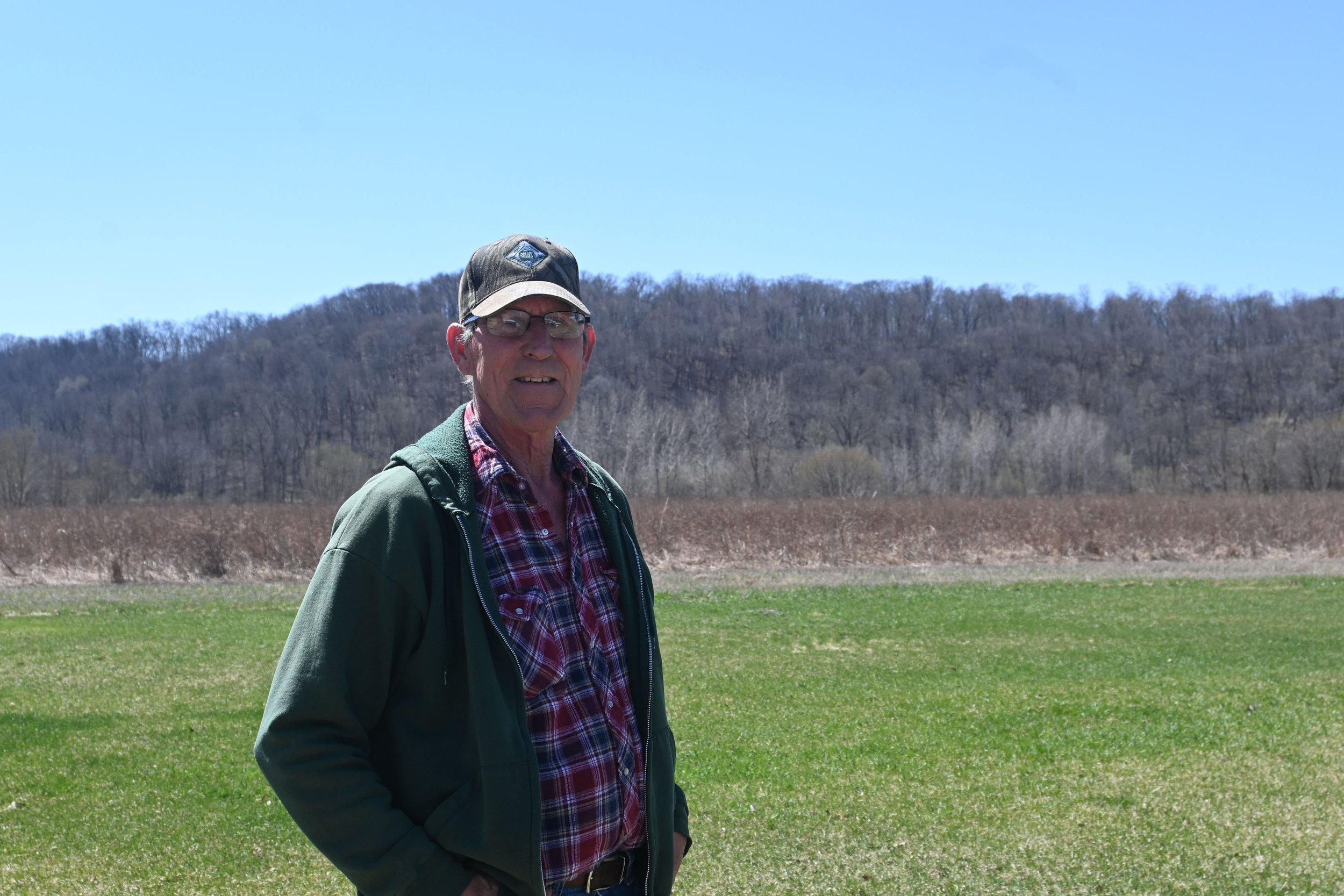Barbara Johnson and her husband, Stanley, farm in Page County in southwest Iowa. They have several farms that are divided into CRP, crop acres and pasture. Some of their land is rented to area farmers.
Read MoreRosemary Partridge grew up on a farm near Iowa City. She remembers her dad reading farm magazines to look for practices that would work on his land. Their worst nightmare was doing something wrong and losing their good topsoil. Conservation was a point of pride with the people that she knew – people had pride in passing on their land to their children.
Read MoreILF farmer partner Bill Hammitt knows conservation from many aspects. He is a no-till farmer and was employed for 15 years at Natural Resources Conservation Service. Farming near Portsmouth in Harrison County, he has been a corn-soybean no-tiller for over 30 years. He farmed while working for NRCS and the farm grew to where he couldn’t keep doing both, so he chose to become a full-time farmer.
Read MoreWhiterock Conservancy is a non-profit land trust of 5,500 acres located near Coon Rapids along the Middle Raccoon River. Staff work together to fulfill the Conservancy’s mission to actively manage conservation land, to demonstrate sustainable farming practices and to keep the land open to the public.
For in-field practices, the Conservancy has incorporated no-till and cover crops on almost every crop acre. The Conservancy uses both single species and mixtures of cover crops, including cereal rye, oats, red clover, tillage radish and Austrian winter pea.
Born and raised on a farm, Doug Campbell started farming in 1977 on rented land. He is now back home on the farm that has been in his family for generations. Located in rural Shannon City, Ringgold County, he runs a diverse operation with row crops, CRP land, hay and pasture for his cow/calf operation.
Read MoreILF farmer partner Tim Palmer began farming with his dad and has continued to do so for the past 40 years. Palmer grows corn, soybeans, oats and hay on his farm near Truro in Madison County. He also raises beef cattle to market.
Read MoreDennis McLaughlin began demonstrating conservation practices on his acreage as a way to preserve resources for future generations. For 30 years he has been applying these conservation methods to his heritage farm, which was established in 1854.
Read MorePaul was born and raised on a farm and began his own operation in 1997 after graduating from ISU. His grandparents purchased the family farm in 1973. Paul and his father farm 1,000 acres in corn, soybeans, oats and hay and also have a cow/calf operation. He has also implemented rye cover crops, installed waterways and terraces and has some CRP ground.
Read MoreThird generation farmer Max Schmidt began farming in 1969 with 40 milk cows and 153 acres. Today the farm has grown to 3,500 acres in row crops and a large farrow-to-finish hog operation. Schmidt’s hog operation has been organized as KMAX Farms LLC, with four former employees now partnering with the company. The hog manure produced is recycled back to the land providing the fertility for the next corn or soybean crop.
Read MoreSimultaneous strip-till, fertilizer application and planting is the right springtime combination for Fayette County producer and ILF farmer partner Collin Jensen, who saves fuel, reduces soil erosion, improves soil quality and lessens compaction by farming this way.
Read MoreEric and Cindy Boehm have been farming since 1975 and have been applying conservation practices for a number of years and is an “ongoing process” says Eric. They are adding cover crops this year to some of their acres. Other conservation efforts include establishing prairie and reconstructing a wetland. The streambank stabilization of Brush Creek, which flows through his property, was initially completed in the mid-1990s and has been repaired or redone several times since then due to flooding.
Read MoreDave Ruden has farmed his entire life and most recently, he has been farming for a higher purpose. Ruden is the farm manager for the New Melleray Abbey located south of Dubuque. The New Melleray Abbey has approximately 3,400 acres including 1,400 acres of wooded land. The farm has been the property of the Abbey since 1849 when it was founded. The farm was run by the monks at the abbey in the past, but Ruden now oversees the work of tenants to whom they rent the row crop acres.
Read More


















